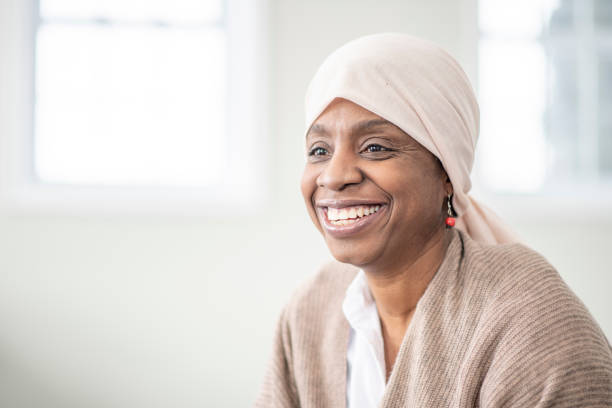
Part of being a cancer survivor is that you may have some residual emotions after your experience. You may be unsure of what comes next or how to move forward with your life. Part of taking care of yourself is paying attention to your emotions and feelings that may arise. Also, taking care of your body by eating well, exercising, sleeping, and achieving balance, and eliminating or reducing stress will help you stay healthy and feel like your old self, and improve the quality of your life.
Here is how to successfully navigate the next chapter of your life as a breast cancer survivor.
Emotions and Breast Cancer
You may have anxiety or stress over what the future holds; you may have anxiety regarding your financial situation, or about going back to work. Also, you may experience depression. If you are experiencing these issues, contact your doctor. Counseling, joining a support group, or possible medication are great solutions to alleviate your stress and worry.
Body Image and Sexuality After Breast Cancer
Experiencing breast cancer can have short-term or long-term effects on your body. Short-term effects such as hair loss are difficult but can be alleviated by using a wig or a scarf while your hair grows back. Other more long-term effects, such as a single or double mastectomy, can be more devastating to your body image.
Hormone changes in the body may affect your interest in sex, or may also increase your chances of early menopause. You should be honest and open with your spouse or significant other with your feelings, and you can also seek solace in a support group or with a counselor. You can always discuss options with your doctor to alleviate any of these symptoms.
RELATED: 4 Amazing Hairstyle Ideas For Breast Cancer Survivors
Follow-up Care
After your cancer treatment is over, you still need to schedule your follow-up care. The best approach is to speak with your doctor to develop what is called a “survivorship plan.” This can be a schedule of doctor’s visits or scheduled tests. Your doctor may suggest a specific exercise regimen or a diet. This will help put you on the right track to proactively manage your own care and to know what to expect as a survivor.
Exercise
Regular exercise has many benefits, as it can help relieve stress, improve your mood, and give you more energy. Also, you may be able to lose weight and reduce your risk for other diseases such as diabetes or heart issues. Consult your doctor before beginning an exercise regimen to ensure that you are healthy enough to start. Going for a walk or a run can help blow off steam and can be a fun activity to do with your friends or family. Remember to start small and build up gradually; don’t tackle a marathon, start by walking around the block.
Coping With Stress and Fear
As a cancer survivor, you will encounter new challenges in your new life. Many of these challenges, which can vary from physical, to social, to financial, can cause you some stress or anxiety. You may have a fear of recurrence of cancer. There are other issues you may have to address as well. Thankfully, there are many programs, approaches, and tools that you can employ to face and address these challenges.
By interacting with those who may have had the same experiences as you, you may be able to reduce your stress or anxiety or learn ways in which to cope with your stress. Mindfulness meditation can help you learn to relax and control your thought process, which may help with anxiety. Also, exercise is a great outlet in which to focus your energy, and it may make you feel better and in more control of your body. Counseling, or psychotherapy, provides you with the opportunity to speak with someone, as well as the ability to gain a few helpful techniques to manage your stress.
RELATED: 5 Foods Breast Cancer Survivors Should Eat
Concern For Family Members
After surviving breast cancer, you may be concerned for your family members and the risk of your family members having breast cancer as well. Although it is unclear if the cause is genetic, your family members may have an increased risk of having breast cancer due to genetics or living similar lifestyles. The younger that you were diagnosed, the higher the risk of another family member having cancer as well. Also, if two members in one family were diagnosed with breast cancer or ovarian cancer, there is a higher risk for there to be a gene mutation.
Deciding to proceed with genetic testing for you or your family members is a big decision. This decision can also lead to other concerns. Your doctor can refer you to a genetic counselor to guide you through this process and inform you of all the risks and benefits of opting for this testing.
You can discuss the risks with your mother, sisters and daughters, as well as the men in your family. Although male breast cancer is rare, it is a possibility. Your family members may opt to be screened or tested for cancer or for gene mutations. Once again, healthy living that involves exercise and eating well is always a great precaution to take to lower your risk of cancer.
RELATED: 5 Keys To Breast Cancer Survivorship
Fear of Recurrence
A common fear for breast cancer survivors is the fear of recurrence. Recurrence can occur where the original breast cancer was found, which is called local recurrence, or it can be found elsewhere in your body, which is called metastasis or distant occurrence. If you notice a change in your body, the local recurrence can be found via an exam or via a mammogram. Local recurrences can occur within the first five years of your diagnosis, where the risk of metastasis can vary, depending upon your treatment and diagnosis.
Your risk of getting a new breast cancer is higher than someone who has not had breast cancer. If a new tumor is found, this is called a second primary breast cancer, which is unrelated to the first tumor; whereas a recurrence would be the return of the first breast cancer. Those who opt for a lumpectomy for their first breast cancer are also at risk of getting a second primary cancer in either breast. However, if a woman had a mastectomy for their first breast cancer, she is only at risk of getting cancer in the remaining breast.
Unfortunately, preventative surgery does not improve the rates of survival for breast cancer, including the mastectomy of the healthy breast. A prophylactic mastectomy is only recommended for women with the BRCA1/2 gene mutation, or women who have had radiation therapy to their breast or chest wall. These women should consult with their doctor regarding treatment options and possibilities.
In addition, those with a BRCA1 or BRCA2 gene mutation have a higher risk of a second primary breast cancer; this is about 40-65 percent lifetime risk for women with a BRCA1/2 mutation. Also, there is a higher risk of ovarian cancer with this gene as well. Women with this mutation should speak with their doctor regarding preventative measures to reduce the risk of any type cancer.
Returning to Work
During your treatment, you may be unable to work and have to take leave or work part-time. Once you feel ready to return to work, speak with your doctor to determine both a realistic timeframe to return to work, as well as to determine if you will be able to work part-time or full-time.
Returning to work may help you socially and mentally, and get you out of the house and back into your routine. Some people may not be able to work full-time, or may not be able to or want to return to their previous job. You can use career counselors and career resources to determine what you would like to do, or what would be a better job for you at this point in your life. Your human resources representatives at your current job can help accommodate your needs and help you transition back to work.
Support For Coping With Challenges
You can find support to help you as you face these new challenges. Support groups, both in-person and online can help, along with speaking with a therapist. Also, getting involved with other survivors and possibly giving back through volunteer work to help other cancer survivors may help you as well.
Tune in to our biweekly Facebook Live Tuesdays at 7 pm. EST
For tips and resources on diet, travel and exercise as a cancer patient, download the Tigerlily Foundation’s Breaking The Geographical Barriers For Getting You The Care You Need toolkit.
Follow the Tigerlily Foundation on Facebook, Twitter and Instagram








